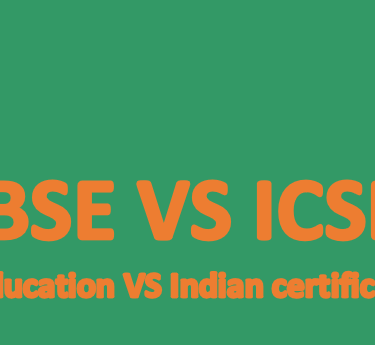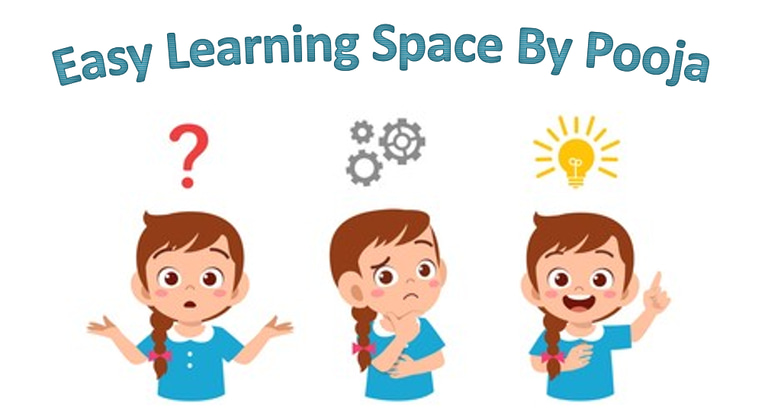CBSE vs ICSE Difference between the curricula, approach and understanding
Difference between CBSE and ICSE, how to decide the learning module for your child, understanding the core difference between CBSE and ICSE
Pooja
6/17/20253 min read


CBSE vs ICSE
Research says that the Google engine search for the best rated CBSE schools or ICSE schools is always among the most searched keywords among users. This is true given the fact that we always keep discussing it with our friends and family more often that we can think of. Back in the day, our parents did not give much thought to this, as the options they had were less. They had limited access to school and resources. I am sure they did their best with whatever they had at hand. With rapid changing times and ever evolving world, the way we look at education for our children has also changed. Today we have multiple options and are spoiled for choice.
Choosing the right educational board for your child is a critical decision that can influence their learning experience and future academic path. Among the most recognized boards in India are the Central Board of Secondary Education (CBSE) and the Indian Certificate of Secondary Education (ICSE). Each of these boards follows its own syllabus and educational philosophy, leading to different advantages and disadvantages. Understanding these differences can help you to make informed choices for your child's education.
Today we shall discuss few points regarding the different schools we must choose for our children. From whatever little I understand, I have tried to put them down in few points for your better understanding.
Differences Between CBSE and ICSE Syllabus
1. Curriculum Structure
CBSE: The CBSE syllabus is designed around the National Council of Educational Research and Training (NCERT) guidelines. It emphasizes a more streamlined curriculum and focuses on core subjects such as Mathematics, Science, and Social Sciences. The approach is somewhat more theoretical and exam-oriented, preparing students for competitive examinations like the JEE and NEET.
ICSE: The ICSE syllabus, governed by the Council for the Indian School Certificate Examinations, is more comprehensive and detailed. It includes a broader range of subjects and encourages integrated learning. ICSE emphasizes English proficiency and includes subjects like Environmental Science, which may not be part of the CBSE curriculum.
2. Assessment Methods:
CBSE: The assessments in CBSE tend to be more structured with a focus on board examinations at the end of Class 10 (Secondary School Examination) and Class 12 (Senior Secondary Examination). The evaluation is primarily based on written exams.
ICSE: ICSE assessments include a variety of formats like project work, practicals, and written exams, which provide a more holistic evaluation of a student’s abilities. This board values investigative learning and critical thinking.
3. Language of Instruction:
CBSE: Hindi and English are typically the primary languages for instruction, with an emphasis on the Hindi language for students in many regions.
ICSE: English is the medium of instruction, and the board focuses on developing proficiency in the language. Hindi and other regional languages are offered as second languages.
Advantages of CBSE
Focused on Competitive Exams: CBSE prepares students well for national-level entrance exams, making it beneficial for those pursuing engineering or medical fields.
Widespread Recognition: Many universities and colleges across India recognize CBSE, providing students with more admission opportunities.
Less Content-Heavy: The syllabus can be perceived as less exhaustive compared to ICSE, allowing students to have a balanced academic load.
Streamlined Educational Path: There’s a national uniformity that can ease transfer procedures between different states
Advantages of ICSE
In-depth Understanding: Students often gain a deeper understanding of subjects and develop analytical skills through extensive study materials.
Range of Subjects: ICSE provides a broader selection of subjects beyond the conventional, allowing students to explore their interests.
Focus on Language and Skills: The emphasis on English literacy and project work helps build strong communication skills.
Holistic Evaluation: The assessment structure encourages practical knowledge and overall development rather than rote learning.
How to Choose Between CBSE and ICSE
When deciding between CBSE and ICSE for your child, consider the following factors
1. Child’s Learning Style: Assess whether your child thrives in an exam-focused environment (CBSE) or benefits from a more comprehensive, project-based approach (ICSE).
2. Future Academic Goals: If your child aims to pursue engineering or medical studies, CBSE might be a better choice due to its focus on competitive exam preparation. Conversely, if they show an interest in humanities or other specialized subjects, ICSE might offer advantages in those areas.
3. School Facilities: Research schools that offer these syllabi. Some schools provide exceptional resources and opportunities for ICSE curriculum, while others may excel with CBSE. Quality of education and the school environment are vital.
4. Geographical Mobility: If you anticipate relocating frequently within India, CBSE's national network and uniformity could provide more stability for your child’s education.
5. Parental Involvement and Support: Understand your commitment to assisting your child with their studies. Both syllabi have different requirements; evaluate your ability to support them adequately.
Conclusion
Choosing between CBSE and ICSE ultimately depends on your child's learning needs, future aspirations, and your family’s educational values. Both boards have unique strengths that cater to different learning methodologies. By examining the differences and advantages of each syllabus carefully, parents can make a better-informed decision that aligns with their child's best interests, ensuring they receive an education that prepares them effectively for their future.
With Love
Pooja
Address
Pooja
Bangalore
Contacts
easylearningspacebypooja@gmail.com
Subscribe to our newsletter
This blog is for educational purpose only
All the information on this website – www.easylearningspace.com – is published in good faith and for general educational and informational purposes only. I aim to provide helpful teaching tips and resources, but I make no warranties about the completeness, reliability, and accuracy of this information.
Any action you take upon the information you find on this website is strictly at your own risk. I will not be liable for any losses
